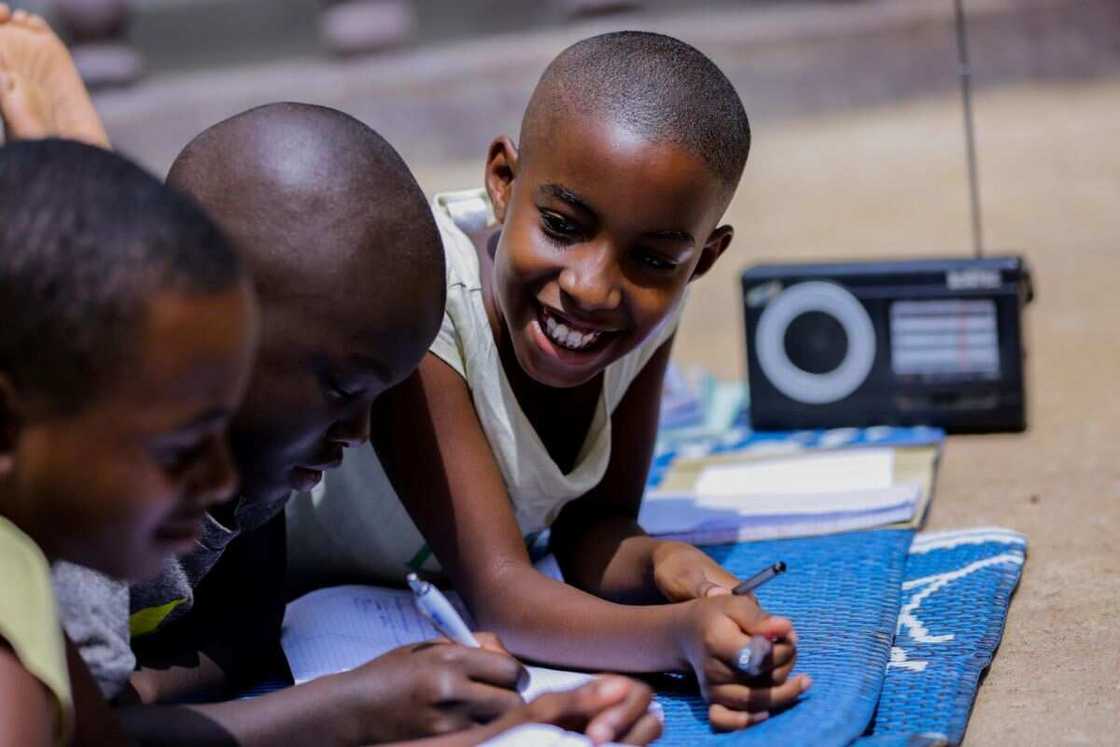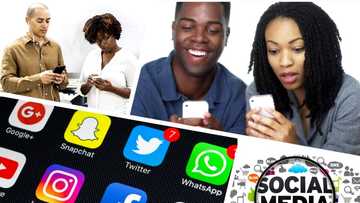The Continued Relevance of Radio in the Digital Age By Dr Geoffrey Njoku
Editor's note: In this piece, renowned communication and advocacy specialist with the United Nations Children’s Fund, Dr Geoffrey Njoku writes on the digitalisation of communication and dissemination of information in today's world. Njoku also highlights the importance of radio and its relegation by emerging media platforms
PAY ATTENTION: Click “See First” under the “Following” tab to see Legit.ng News on your Facebook News Feed!
Radio seems to be getting a run for its money these days.
As we celebrate World Radio Day today, it would appear on face value that radio, as the first information and communication technology for instantaneous mass communication, is in decline. That a celebration of radio is perhaps even anachronistic, in this online, digitized world.
Has the relative ease of digital connectivity and multiplicity of platforms like WhatsApp, Facebook, Instagram, Twitter, YouTube and TikTok, among many others, relegated radio to a position of mere background noise, literally and figuratively?

Source: UGC
Radio’s important role in society was defined by the first director-general of the fledgling BBC in 1920. John Reith said radio should inform, educate and entertain. Through his long tenure as the director-general of the BBC, Reith fought several battles to keep radio a public service devoted to the education and enlightenment of the British people.
PAY ATTENTION: Install our latest app for Android, read best news on Nigeria’s #1 news app
Across the Atlantic in the United States, disparate groups of educationists, reformers and other professional groups fought a similar battle. But they failed in their efforts, and radio became a part of corporate America, diminishing its public service and education role.
The first radio broadcasts in Nigeria in 1932 were programmes of the BBC’s British Empire Service. In the 1940s, the Radio Distribution Service (RDS) broadcasted weekly educational programmes, and radio for education and development was entrenched in the Nigerian Broadcasting Service in 1951.
In fact, there is a generation of older Nigerians today whose first exposure to numeracy and literacy was through the educational broadcasts of Radio Nigeria.
Radio has everything to perform an educational role effectively. It has the warm intimacy and soothing voice of your favourite teacher. Radio breaks down the barriers of distance and illiteracy, reaching far-flung, difficult to access communities in their own languages. It is cheap and mobile.
These qualities have kept radio going despite the onslaught of its younger cousins, television, the internet, and social media.
Radio is not in decline in Nigeria, despite the growth and sometimes overbearing arrogance of new communication technologies. There are 33 million active social media users in Nigeria. This is about 16 per cent of the population. But, according to the Broadcasting Board of Governors Gallup polls, more than 77 per cent of Nigerians still listen to the radio at least once a week, making radio the most dominant means of mass communication in Nigeria.
“Virtual” - or remote - learning started with radio more than 70 years ago in Nigeria. The advent of the COVID-19 pandemic and its attendant lockdowns, coupled with the possibility of digital connectivity for education, seems to have put the radio on the back foot.
But radio reached more children with remote learning during the lockdown than did digital platforms. It reached far more children in deprived neighbourhoods and hard-to-reach communities.
UNICEF supported several state governments to pilot radio learning programmes for children during the lockdown. For example, working with the State Universal Basic Education Board (SUBEB) in Borno state, more than 300,000 children received learning in four core subject areas including English and Mathematics.
In planning communication strategies and education interventions today, it is good to focus on the new technologies. Our future, after all, is digital.
But when we look to conquer the learning crisis that stares us in the face, with more than 13 million children not going to school in Nigeria; when we agonise over the ravages of the COVID-19 pandemic on education and how to address them, let us not forget the importance of radio.
Any strategy that ignores millions of poor children in hard-to-reach communities who are digitally excluded will only succeed in achieving less than half of its objective. It needs the complementary role of radio, the sound alternative that allows us to reach all.
Disclaimer: The views and opinions expressed here are those of the author and do not necessarily reflect the official policy or position of Legit.ng.
Your own opinion articles are welcome at info@corp.legit.ng— drop an email telling us what you want to write about and why. More details in Legit.ng’s step-by-step guide for guest contributors.
Contact us if you have any feedback, suggestions, complaints, or compliments.
Source: Legit.ng






